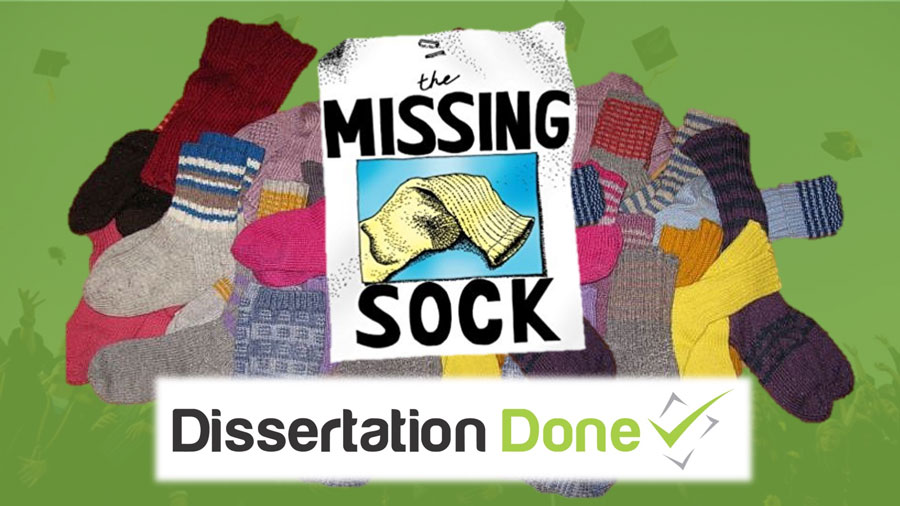
Lost Socks and Dissertations
May 9th is National Lost Sock Memorial Day. It turns out that fixing your laundry is a lot like fixing your dissertation!…
Why, oh why do our socks always seem to be missing their match? Apparently, each person loses 1.3 socks per month on average…but why? This is the question psychologist Dr. Simon Moore and statistician Geoff Ellis set out to answer at the behest of Samsung.
The scientists analyzed the laundry habits of 2,000 people to determine the frequency of sock loss, but also to determine why.
Details are a bit slim in this article, but it looks like the study designers concocted a survey about laundry habits that uncovered the frequency of sock loss in each household. The survey also tagged each household for size of loads, complexity of loads, positive attitude of the person doing laundry, number of people doing laundry, and a few other things that turned out to be less important.
After collecting the data, because it was quantitative they were able to do some statistical analysis to determine which attributes were most important to lost sock frequency.
They came up with a handy dandy little sock-loss prediction formula:
Sock loss index = (L+C)−(PxA)
L equals laundry size, C equals washing complexity, P equals the positivity towards doing laundry and A equals degree of attention.
The higher the index, the higher the likelihood of losing socks.
Wow! How useful…okay, maybe not so useful. Alright, probably not useful at all. I mean, how can you add laundry size and complexity? In whose mind are those things measured in the same units?
But, here’s my point: You can do a quantitative study on anything. When you start to think “Oh, my topic doesn’t lend itself to quantitative analysis,” stop yourself right there. These guys did a quant study on missing socks…and got paid for it!
If they can get paid to execute a quantitative study on missing socks, you can certainly earn your degree by completing a quantitative study on whatever dissertation topic you have in mind. You just need to design it correctly.
Make sure that the research questions is worded appropriately for a quantitative study. Make sure that you know where you can get your data…and how you’ll collect your data.
After that, it’s pretty easy. Not that anything about your dissertation is easy, mind you. But, it’s a lot faster to complete a qualitative study than setting up all those interviews, showing up for all those interviews, and then pouring over the transcripts to make sense of all those interviews.
Are you having trouble with the study design for your dissertation? Click here to schedule a quick, 15-minute chat with me to see if you’re a good fit for our Fast Track Your Dissertation Coaching Program. If you are, then I’ll invite you to join the fastest group of dissertation students out there and help you to reach graduation a good year or two faster than you would on your own.
